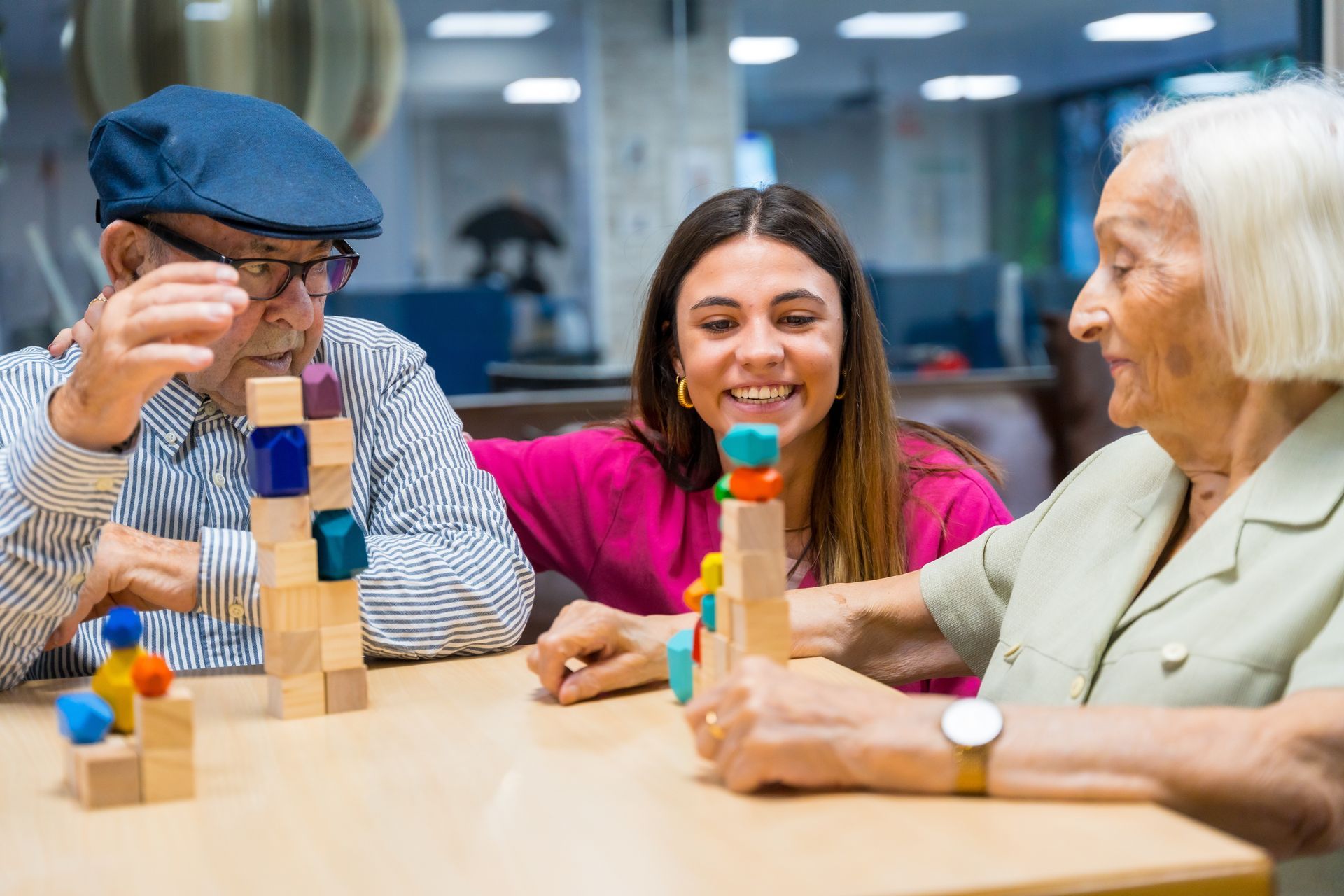BLOG
The Importance of Flu and Pneumonia Vaccinations for Seniors in Assisted Living
Older adults in assisted living communities face heightened risks from respiratory infections like influenza and pneumonia. Age-related changes in the immune system make seniors more susceptible to severe complications from these illnesses. Ensuring timely flu and pneumonia vaccinations is a critical preventive measure to safeguard their health. Assisted living facilities are pivotal in facilitating access to these essential vaccines.
Understanding the Risks of Influenza and Pneumonia in Seniors
Influenza and pneumonia are among the leading causes of illness and death in older adults. The Centers for Disease Control and Prevention (CDC) reports that people 65 and older account for a significant proportion of flu-related hospitalizations and deaths annually. Pneumonia, often a flu complication, seriously threatens seniors, especially those with chronic health conditions.
Age-related decline in immune function, known as immunosenescence, reduces the body's ability to fight infections. Chronic diseases such as diabetes, heart disease, and chronic obstructive pulmonary disease further increase susceptibility. Therefore, proactive health measures are essential to protect this population.
Close living quarters in assisted living facilities can facilitate the rapid spread of infectious diseases. Shared dining areas, recreational spaces, and group activities, while beneficial for social engagement, can also increase exposure risks. Implementing vaccination programs helps mitigate these risks by reducing the likelihood of disease transmission. Staff vaccination is equally important to prevent infections into the community.
Hospitalizations due to flu and pneumonia can lead to declining functional status among seniors. Extended hospital stays may result in decreased mobility, increased dependence, and a diminished quality of life. Preventing these illnesses through vaccination helps maintain residents' independence and well-being. It also alleviates the emotional and financial burdens on families and the healthcare system.
The psychological impact of illness outbreaks in assisted living communities can be profound. Fear and anxiety may increase among residents and their families during flu season. Proactive vaccination efforts provide reassurance and contribute to a sense of safety within the community, fostering a more positive and secure living environment for all.
Benefits of Flu and Pneumonia Vaccinations
Vaccinations are proven to prevent influenza and pneumococcal diseases in older adults. The CDC recommends annual flu shots and pneumococcal vaccines for individuals aged 65 and older. These immunizations have been shown to reduce the incidence of illness, hospitalizations, and mortality rates in this age group. By receiving these vaccines, seniors can significantly lower their risk of serious health complications.
Flu vaccines are updated annually to match circulating virus strains, enhancing their effectiveness. High-dose and adjuvanted flu vaccines are specifically designed for seniors to elicit a stronger immune response. These specialized vaccines have demonstrated greater efficacy in preventing influenza-related complications in older adults. Ensuring access to these formulations is crucial in assisted living settings.

Pneumococcal vaccines protect against Streptococcus pneumoniae bacteria, which can cause pneumonia, meningitis, and bloodstream infections. The CDC recommends two types of pneumococcal vaccines for seniors: PCV13 and PPSV23. Receiving both vaccines at appropriate intervals offers comprehensive protection against various strains of the bacteria.
Vaccinations contribute to herd immunity within assisted living communities. When a high percentage of residents and staff are immunized, the spread of infectious diseases is significantly curtailed. Maintaining high vaccination coverage is a key component of public health strategy in communal living environments.
Beyond physical health benefits, vaccinations can improve mental well-being among seniors. Knowing they are protected against serious illnesses can reduce anxiety and promote a sense of security. This peace of mind encourages participation in social activities, enhancing overall quality of life. Therefore, immunizations play a vital role in supporting both physical and emotional health in assisted living residents.
Implementing Flu and Pneumonia Vaccination Programs in Assisted Living Facilities
Assisted living facilities are uniquely positioned to facilitate vaccination programs for their residents. On-site clinics and partnerships with healthcare providers streamline the immunization process. Coordinating with local pharmacies or public health departments can ensure timely vaccine availability.
Educating residents and their families about the importance of flu and pneumonia vaccinations is critical. Informational sessions, brochures, and one-on-one consultations can address concerns and dispel myths. Providing clear and accurate information empowers individuals to make informed health decisions.
Tracking vaccination status is vital for ensuring comprehensive coverage. Maintaining up-to-date records allows staff to identify unvaccinated individuals and schedule necessary appointments. Electronic health records can facilitate this process and improve communication among care teams. Accurate documentation is essential for monitoring long-term senior health.
Monitoring and Supporting Vaccine Compliance in Senior Residents
Assisted living staff must play a proactive role in encouraging vaccine compliance among residents. Ongoing reminders and regular communication help maintain awareness of seasonal and routine vaccination needs. Family involvement can reinforce these efforts, particularly when residents have cognitive or memory challenges. Consistent outreach helps reduce missed vaccinations and strengthens preventive care systems.
Understanding individual health conditions is essential in tailoring vaccination recommendations. Some seniors may require additional guidance due to existing chronic illnesses or allergy concerns. Collaborating with primary care providers ensures that vaccinations are administered safely and appropriately. Personalized care plans support both safety and vaccine efficacy in this population.

Behavioral hesitations and misinformation can act as barriers to vaccination. Many seniors hold outdated beliefs or past experiences that influence their willingness to get vaccinated. Offering compassionate, evidence-based education helps ease those fears and encourages informed choices. Informed consent paired with respectful dialogue is key to building trust.
It’s also essential to train caregivers and nursing staff on best practices for vaccine administration. Ongoing education improves the quality of care and ensures consistent application of clinical protocols. Teams that understand vaccine guidelines are more effective in promoting adherence.
Regular audits and internal assessments help facilities measure their success in immunization efforts. Tracking coverage rates, adverse event follow-ups, and resident feedback provides insight for continuous improvement. Facilities that evaluate performance can adjust strategies to improve outcomes year after year.
Integrating Flu and Pneumonia Vaccinations into Holistic Senior Wellness Plans
Vaccination is only one part of a comprehensive wellness plan for seniors in assisted living. Flu and pneumonia vaccines work best when paired with overall health strategies, including proper nutrition and regular exercise. Facilities that embrace a whole-person approach create stronger immune systems and better outcomes. Preventive care becomes most effective when integrated into daily routines.
Encouraging hydration and good sleep hygiene supports vaccine response and overall immune function. Seniors are more likely to stay healthy when their basic needs are met consistently. Assisted living teams can facilitate these habits through structured schedules and caregiver support. Routine health monitoring ensures residents stay on track with wellness goals.
Social engagement also boosts immune health and emotional resilience. Group activities, outings, and shared meals reduce isolation and support mental well-being. Facilities that offer engaging lifestyle programming create a healthier environment for vaccine success. Emotional wellness and physical wellness are closely interconnected.
Staff should work closely with residents to coordinate other immunizations alongside flu and pneumonia vaccines. Shingles and COVID-19 boosters may also be recommendeddepending on age and health status.
Incorporating family members into these wellness conversations improves transparency and cooperation. Loved ones can advocate for the health needs of residents and participate in vaccination planning. Communication between staff and families strengthens accountability and supports informed decision-making. A shared commitment to wellness enhances the overall success of care plans.
Our Commitment to Health and Prevention
At Assured Senior Living, we understand the critical role vaccinations play in maintaining the health and independence of our residents. Flu and pneumonia vaccinations are seasonal safeguards and part of our year-round commitment to proactive, personalized care. We work closely with families, physicians, and healthcare partners to ensure every resident receives timely immunizations and ongoing support.
Our team takes a holistic approach to wellness that goes beyond the basics. We create safe, informed environments where seniors feel empowered and cared for. If you're looking for an assisted living community that treats health and prevention with the seriousness it deserves, we’re here to help. Contact Assured Senior Living today to learn how we keep our residents protected, connected, and thriving—every season of the year.














